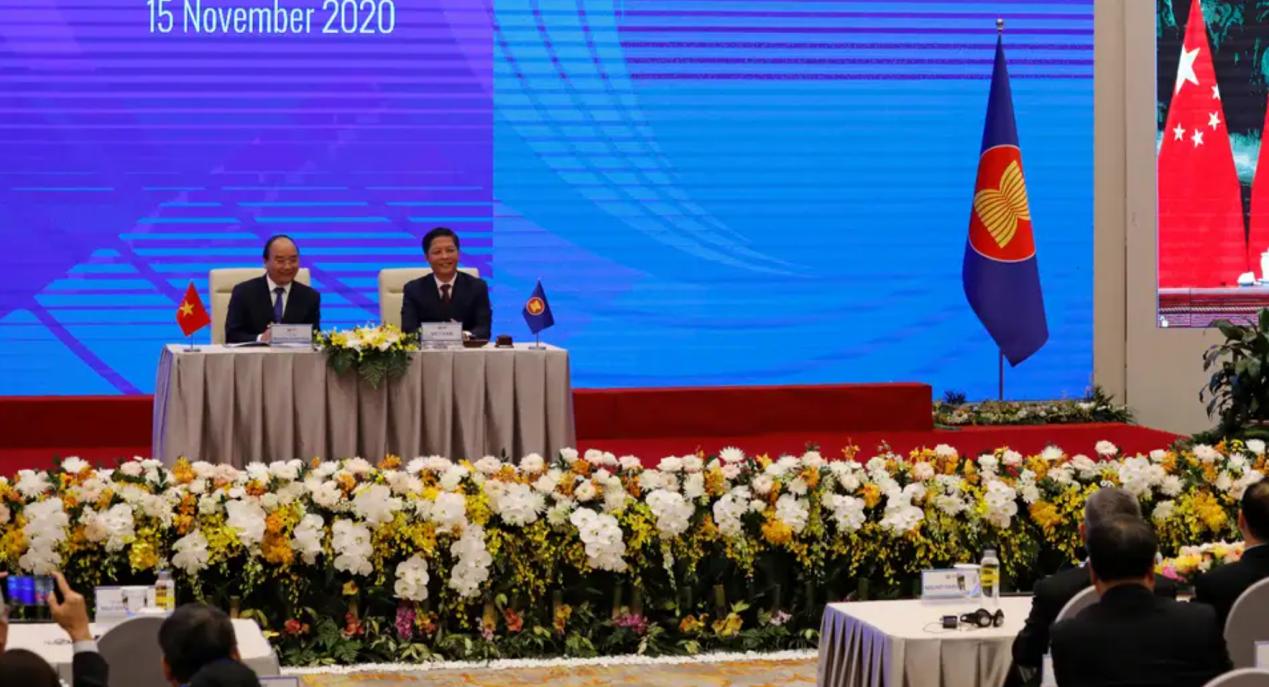
Five years after its establishment, the Regional Comprehensive Economic Partnership (RCEP) is set to hold its first leaders' summit in the fourth quarter of 2025. As a super free trade area covering nearly 30% of the world's population and GDP, this summit not only bears the mission of consolidating the achievements of regional economic cooperation but also attracts much attention due to the first systematic discussion on the "expansion" issue. Against the backdrop of globalization encountering headwinds and the intensification of geopolitical conflicts, how RCEP can break through development bottlenecks through mechanism upgrades and member expansion will be a key variable in reshaping the economic landscape of the Asia-Pacific region.
I. RCEP's Five-Year Achievements: From Rule Implementation to Industrial Chain Reconstruction
Since its full implementation in 2022, RCEP has pushed regional trade liberalization into the "deep water zone". Data shows that in the first four months of 2024, the trade volume of intermediate products between China and RCEP member countries reached 2.9 trillion yuan, an increase of 5.5% year-on-year, highlighting the deep integration of regional industrial chains. Cases such as the cross-border industrial chain of bird's nest built by Guangxi based on the "China-Malaysia Two Countries, Two Parks" project and the establishment of a subsidiary for engines in Southeast Asia by Yuchai Group demonstrate the effectiveness of RCEP in reducing tariff barriers and optimizing rules of origin.
Deeper changes lie in the breakthroughs at the rule level. At the high-level dialogue on RCEP economic and trade cooperation in Nanning in September 2025, the business communities of member countries issued the "Joint Statement on Maintaining the Stability of Sustainable and Inclusive Industrial and Supply Chains" and established the International Trade Supply Chain Quality Certification Cooperation Alliance, marking the shift of regional cooperation from "trade-driven" to "rule-led". The upgrade agreement of the China-ASEAN Free Trade Area 3.0 is about to be signed, forming a "dual-wheel drive" with RCEP and further strengthening the regional economic resilience.
II. Motivations for Expansion: Responding to External Pressures and Internal Upgrade Demands
Currently, RCEP's development faces dual challenges: externally, unilateral measures such as the United States' imposition of tariffs on ASEAN and the promotion of the "Indo-Pacific Economic Framework" have disrupted the regional economic order; internally, member countries have an increasing demand for rules in new fields such as digital economy and green economy, while the existing mechanism has shortcomings in dispute resolution and mutual recognition of standards. Expansion has become the core path to break the deadlock.
From a geo-economic perspective, expansion can expand RCEP's "rule radiation circle". The Hong Kong Trade Development Council has clearly applied for membership, and its international financial and trade network can inject new energy into regional cooperation; although India withdrew from RCEP negotiations, its digital economy market size and manufacturing potential remain attractive. If India can be attracted back through mechanism innovation, RCEP will cover more than 40% of the world's population, forming a true "Asia-Pacific Economic Community".
From the perspective of rule-based competition, the pioneering explorations of the CPTPP and other agreements in areas such as digital trade and labor standards have pushed the RCEP to accelerate its upgrade. At the RCEP Media and Think Tank Forum held in Haikou in May 2025, experts generally called for the establishment of a permanent secretariat and the improvement of the investor-state dispute settlement mechanism (ISDS). Expansion can also drive institutional innovation - new members must accept higher standard rules as a prerequisite for joining, thereby promoting the overall mechanism to leap towards a "high-quality free trade area".
III. Expansion Path: From "Gradual Opening" to "Functional Expansion"
Expansion is not merely about increasing the number of members but requires the establishment of a virtuous cycle of "rules - interests - governance". Drawing on the experience of the Shanghai Cooperation Organization, the RCEP can adopt a "three-step" strategy:
1. Prioritize the absorption of "rule-compatible" economies: such as Hong Kong and Sri Lanka, whose legal systems are highly compatible with the RCEP, and whose accession can rapidly enhance regional financial and logistics efficiency.
2. Establish a "observer - dialogue partner - member" gradient mechanism: following the model of the Shanghai Cooperation Organization, allowing potential members to participate in some negotiations as observers, lowering the entry threshold while ensuring rule consistency.
3. Focus on functional area cooperation: establish "mini-multilateral" sub-mechanisms in emerging fields such as digital economy and green energy, attracting non-members to participate in project cooperation, and gradually building cross-regional value chains. For instance, the cooperation between China and ASEAN in areas like artificial intelligence and cross-border e-commerce can be expanded into regional standard setting under the RCEP framework.
Looking ahead, if the RCEP can reach a consensus on an expansion roadmap at the 2025 summit, its influence will extend beyond the economic sphere. When the United States attempts to restructure the global industrial chain through tariff wars and "small yard, high wall" strategies, an RCEP covering major economies in the Asia-Pacific region with a unified rule system will become a crucial pillar of a multipolar order. As ASEAN Secretary-General Kao Kim Hourn stated, "The ultimate goal of the RCEP is not confrontation but to provide the world with an alternative to unilateralism in the form of cooperation." In this rule-based competition without gunsmoke, expansion might just be the key move for the RCEP to break the deadlock.

報告顯示,中國電力投資加速增長,預計2024年電網基建投資將超過5300億元。
近日,市場迎來了一則引人注目的消息:工業巨頭3M公司(MMM.N)在本周五公布了其季度業績報告,隨後股價飆升至近兩年來的
最近,外媒給OpenAI算了筆賬,今年可能要血虧50億美元。
近日,巴黎奧運會和世界鐵人三項協會聯合發布了一項重大決定,宣布因塞納河水質污染問題,原定於近期進行的奧運會鐵人三項首次下
當地時間7月18日,法國巴黎發生了一起令人震驚的持刀襲警事件。
近期,一則重大消息在國際舞臺上引起軒然大波,馬來西亞宣布加入金磚國家。
調查發現,互聯網和智能手機的使用幹擾了韓國近五分之一學生的生活。